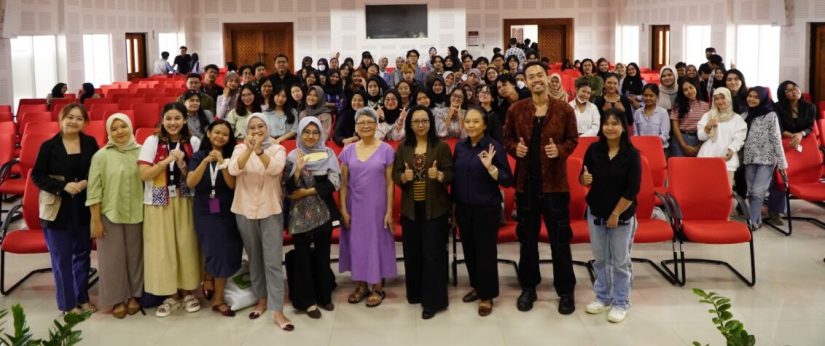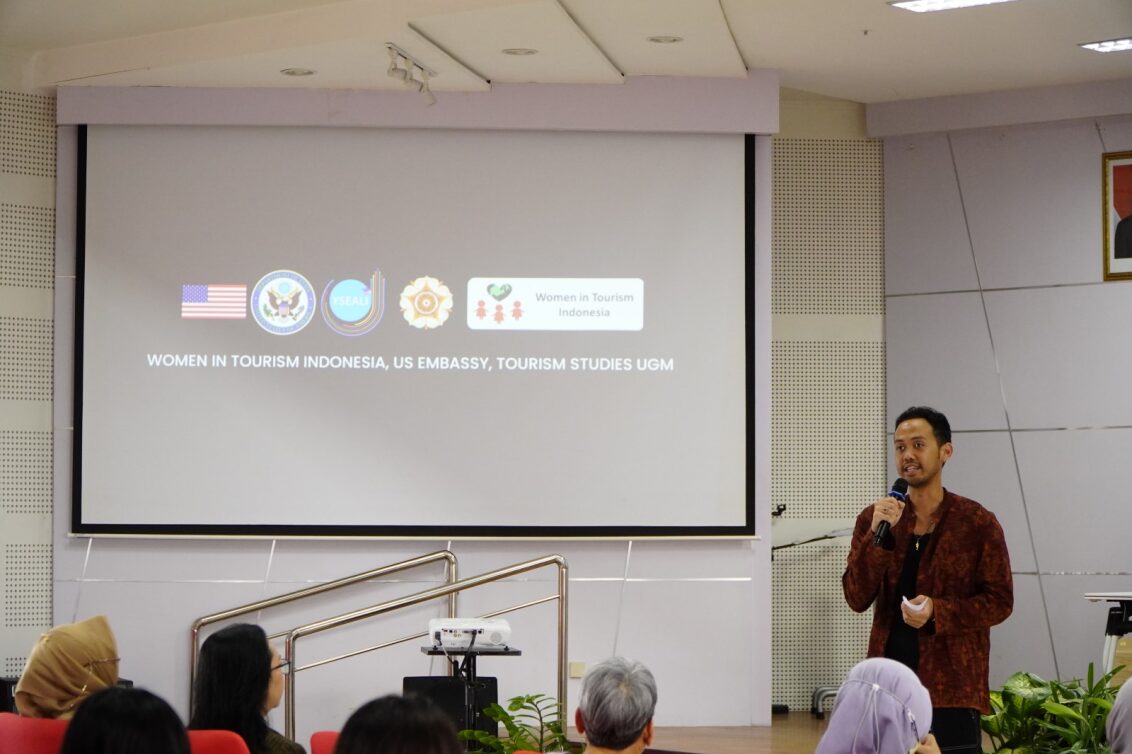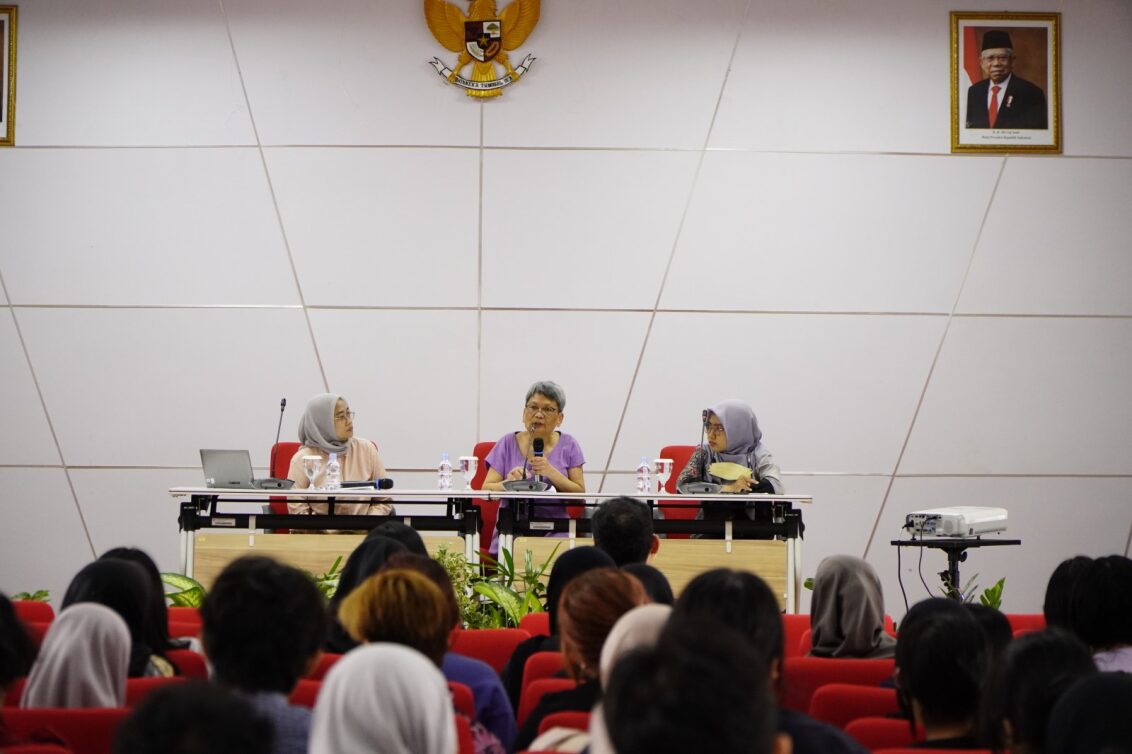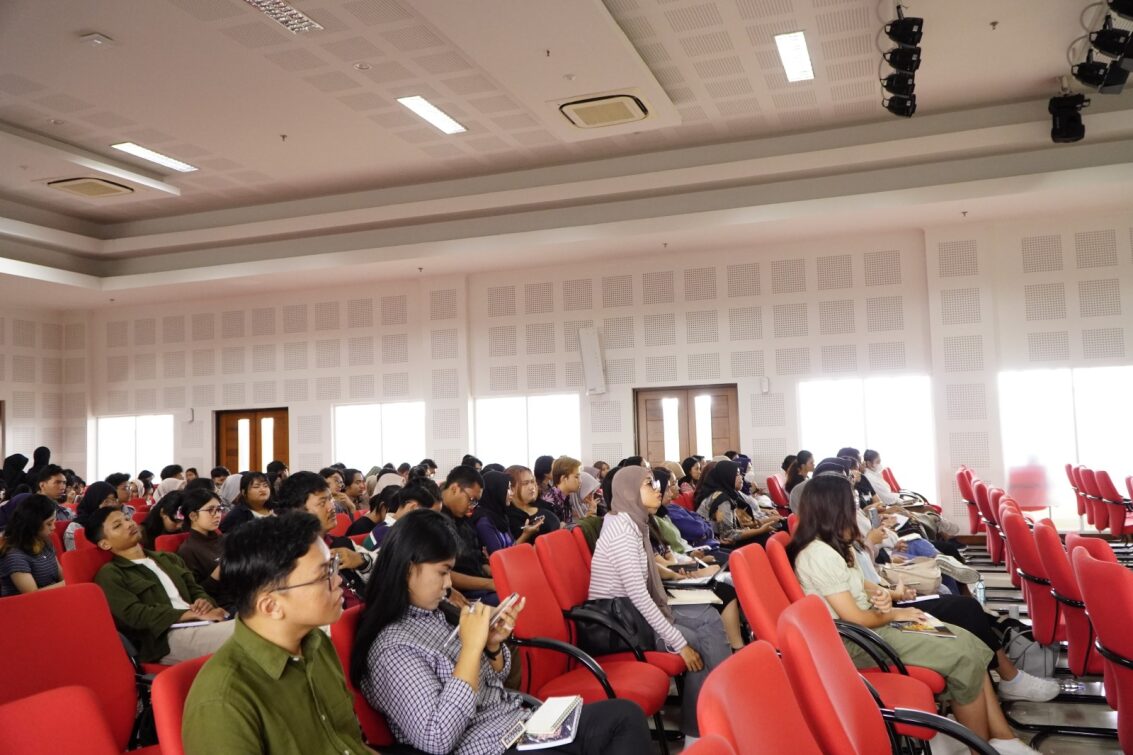
Bulaksumur, Wednesday, February 28, 2024 – The Tourism Study Program, in collaboration with Women In Tourism Indonesia and the U.S. Embassy Jakarta, held a public lecture featuring Velma Veloria from Washington University. Taking place at the Soegondo Auditorium, the lecture discussed the Intersectionality of Human Trafficking, Gender, and Tourism. This event reflects a commitment to support and collaborate among academia, practitioners, and the government to create a more inclusive tourism industry, especially for vulnerable groups such as women and children.

To open the event, Dr. Nur Saktiningrum, S.S., M.Hum., Vice Dean for Academic and Student Affairs, and Dr. Wiwik Sushartami, M.A., emphasized the urgency of addressing tourism and gender issues. They stated that this topic is highly relevant not only for undergraduate tourism students but also for students in other disciplines. This reflects a broader effort to mainstream gender perspectives in higher education, particularly in tourism education. Beyond academia, these issues must also be addressed within industry and government institutions. Therefore, it is crucial for all of us to advocate for gender equality in the tourism sector.
 Velma began her presentation by asserting that tourism is, in essence, a sector that has the potential to do good. She noted that tourism can be inclusive and empowering for women. However, she also highlighted key challenges in the sector, such as long working hours, wage disparities, and the potential exploitation of female workers. Additionally, she pointed out that women are especially vulnerable to becoming victims of human trafficking.
Velma began her presentation by asserting that tourism is, in essence, a sector that has the potential to do good. She noted that tourism can be inclusive and empowering for women. However, she also highlighted key challenges in the sector, such as long working hours, wage disparities, and the potential exploitation of female workers. Additionally, she pointed out that women are especially vulnerable to becoming victims of human trafficking.
 Velma specifically addressed how tourism can act as a “potential medium” for human trafficking. She explained that popular or attractive destinations are often susceptible to becoming trafficking hubs. One stark example she cited was sex tourism, which she described as a clear manifestation of human trafficking in the tourism sector. According to her, sex tourism in Southeast Asia frequently involves minors and often results in pedophilia.
Velma specifically addressed how tourism can act as a “potential medium” for human trafficking. She explained that popular or attractive destinations are often susceptible to becoming trafficking hubs. One stark example she cited was sex tourism, which she described as a clear manifestation of human trafficking in the tourism sector. According to her, sex tourism in Southeast Asia frequently involves minors and often results in pedophilia.
Echoing Velma’s concerns, Amelia also emphasized that women hold a vulnerable position within the tourism industry. She attributed this to the lack of bargaining power that women possess when advocating for their rights. As a result, women and children are often exploited as sex workers or fall victim to trafficking. She reported that seven women and two children had been recorded by the Sleman Police Sector as sex workers and human trafficking victims. Moreover, Amelia confirmed that sex tourism practices in Indonesia are often sustained due to backing from corrupt officials. She cited the example of covert sex tourism activities in the Sleman area, which occurred alarmingly close to law enforcement offices.
 This event served as a tangible contribution to the achievement of the Sustainable Development Goals (SDGs). Specifically, the collaboration helped advance SDG 4: Quality Education by promoting inclusive, equitable education and lifelong learning opportunities. It also supported SDG 17: Partnerships for the Goals by strengthening effective partnerships among government, the private sector, and civil society. Additionally, it contributed to Goal 5 (Gender Equality), aiming to achieve gender equality and empower all women and girls.
This event served as a tangible contribution to the achievement of the Sustainable Development Goals (SDGs). Specifically, the collaboration helped advance SDG 4: Quality Education by promoting inclusive, equitable education and lifelong learning opportunities. It also supported SDG 17: Partnerships for the Goals by strengthening effective partnerships among government, the private sector, and civil society. Additionally, it contributed to Goal 5 (Gender Equality), aiming to achieve gender equality and empower all women and girls.




